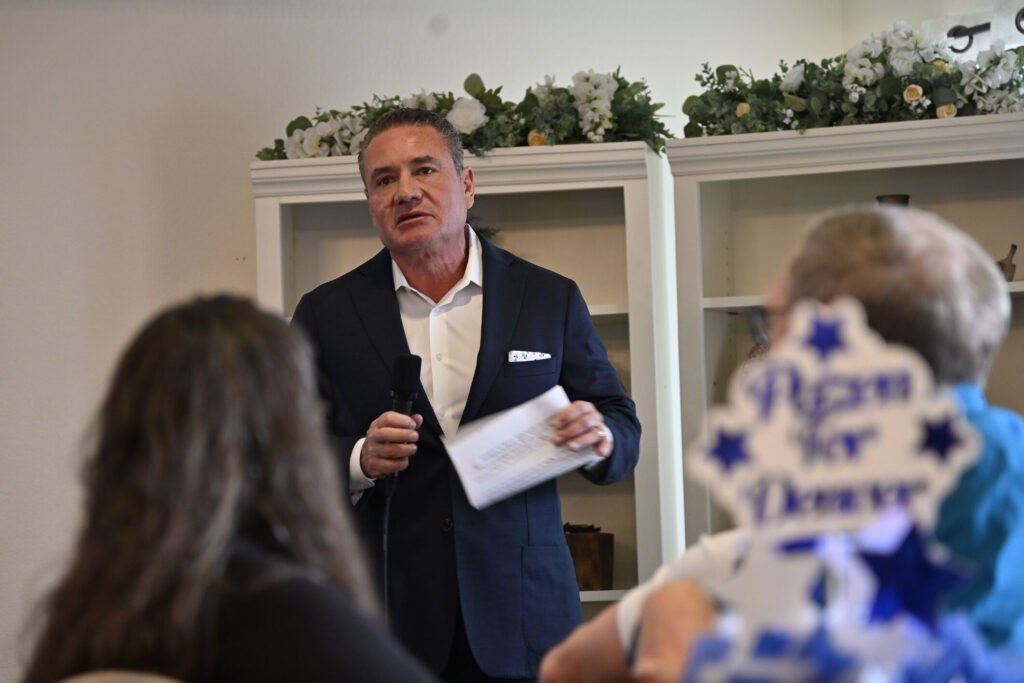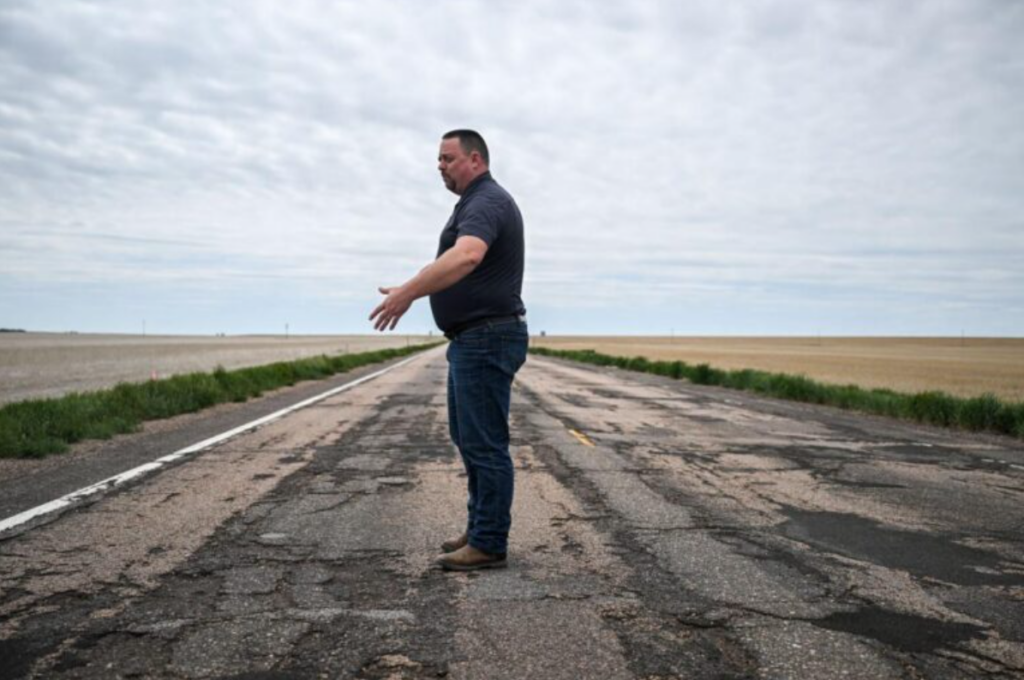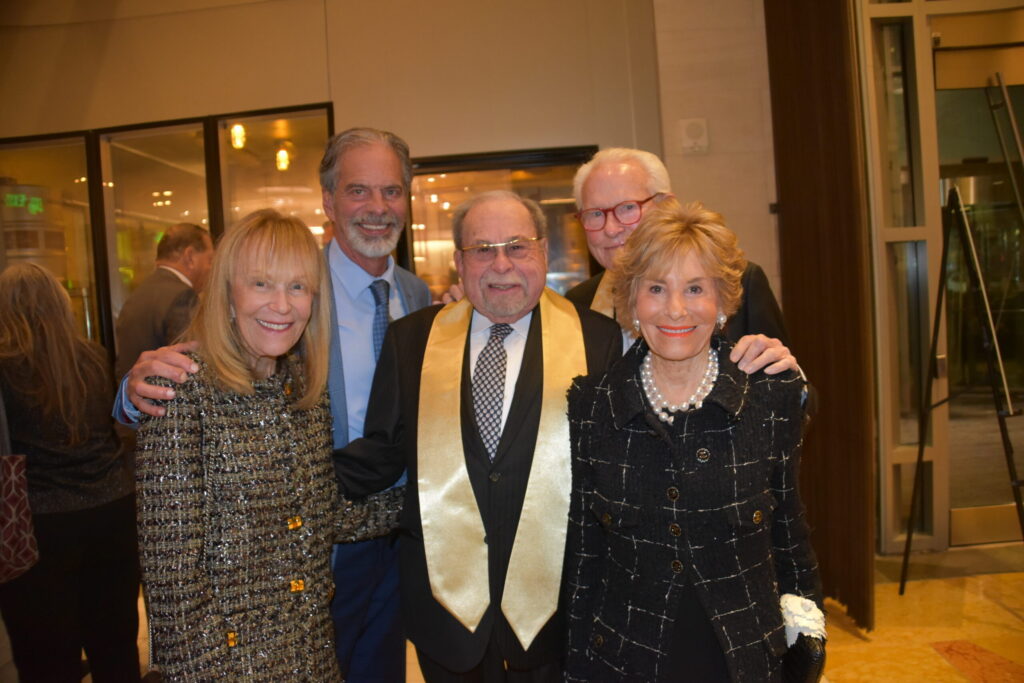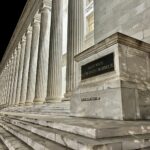Jared Polis, Arthur Laffer clash with Rose Pugliese, Michael Fields over property tax measure | WHAT YOU NEED TO KNOW
Today is Oct. 24, 2023, and here’s what you need to know:
Colorado’s Democratic governor and a conservative economist faced off against a Republican legislator and the head of a conservative-leaning advocacy organization Monday in a debate over a multibillion-dollar ballot question to offer property tax relief by using dollars earmarked for taxpayer refund.
With just over two weeks remaining until ballots are due, Gov. Jared Polis teamed up with economist Arthur Laffer to urge passage of the statewide ballot measure, while Assistant House Minority Leader Rose Pugliese, R-Colorado Springs, and Michael Fields of Advance Colorado Action argued against it.
The lively, hour-long debate, sponsored by The Denver Gazette, Colorado Politics and 9News, was moderated by 9News political reporter Marshall Zelinger and streamed live online.
The ballot question, which was referred to the November ballot by the Democratic-controlled legislature, asks voters to let the state keep surplus revenue under the Taxpayer’s Bill of Rights for a 10-year period. If it passes, the funds – estimated at about $170 million in the first year and growing in subsequent years – would go to local governments to offset reductions in property tax revenue.
The complicated measure would also redirect TABOR refund money to rental assistance and K-12 education, and expand property tax relief enjoyed by seniors, among other provisions.
Aurora Mayor Mike Coffman supports a “work-first” strategy, noting the city is hewing closer to Colorado Springs’ approach. Coffman disagrees with “housing-first” models – the preferred strategy in Denver – because, he argues, they measure success by how many people are taken off the streets, while he looks at employment and self-sufficiency as more meaningful yardsticks.
Under its “work-first” strategy, Aurora supports and provides jobs through Ready to Work, a program started by Bridge House, a nonprofit that provides homeless people with dormitory housing and services to help them stay sober, receive counseling and upgrade their job skills, while requiring them to work a minimum of 20 hours a week.
Coffman maintained that his approach does not criminalize urban camping and it gives homeless people a 72-hour notice before the city sweeps an encampment.
“Unfortunately, they rarely take advantage of our services and chose to remain on the streets and simply move to another area and then return later on to the same location despite the fact that we offer them a safe place to stay with lots of resources to help them,” Coffman said.
An Arapahoe County judge had no authority to penalize the prosecution when the state lab did not provide blood test results in a drunk driving case as soon as he wanted it to, the Colorado Supreme Court ruled on Monday.
The 18th Judicial District Attorney’s Office petitioned the justices directly after County Court Judge J. Jay Williford barred prosecutors from using evidence of a defendant’s blood alcohol content at trial. Williford gave the government a deadline to produce the results and, when it did not comply, he chose to exclude the evidence as a sanction on the prosecution.
The Supreme Court agreed with the district attorney’s office that the rule requiring prosecutors to turn over evidence “as soon as practicable” did not give Williford the ability to enforce his own deadline when the Colorado Bureau of Investigation had not yet completed its testing and no trial was even scheduled.
The district attorney’s office claimed to the Supreme Court that Williford, a former prosecutor, was the only judge in Colorado who regularly ordered the government to provide blood testing results in DUI cases by specific deadlines. That was problematic, the office alleged, because Williford’s deadlines were arbitrary and caused ripple effects statewide.
Across the vast federal court system are dozens of trial courts, 13 circuit courts of appeals and one Supreme Court. Each court issues countless pages of written work every year.
While the contents of judicial decisions may vary greatly, the look and feel of those decisions also lack uniformity.
Joe Fore, a professor of legal research and writing, has taken a different approach to analyzing court opinions. His interest lies in the formatting of judicial decisions and how style affects readability. Fore spoke with Colorado Politics about the most meaningful choices judges can make in laying out their decisions, and he reviewed the work of the Denver-based U.S. Court of Appeals for the 10th Circuit.













